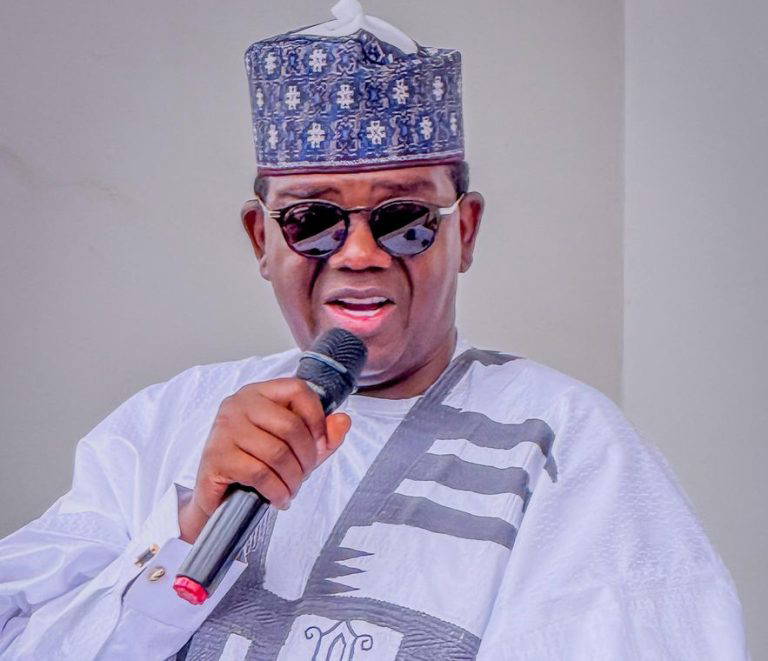On December 7, 2024, Ghana, often regarded as a beacon of democracy in Africa, will hold its general elections to choose its next president and parliamentary representatives. Nearly 18.8 million registered voters are preparing to cast their ballots in an election characterized by high stakes, intense political rivalry, and pressing economic challenges. With a rich tradition of peaceful democratic transitions since the return to multiparty democracy in 1992, this year’s elections will test Ghana’s resilience as it grapples with economic turbulence and widespread voter dissatisfaction.
The Political Background: A Familiar Rivalry
Ghana’s political arena remains dominated by two major parties: the ruling New Patriotic Party (NPP) and the opposition National Democratic Congress (NDC). This duopoly has historically fostered fierce competition, and 2024 is no different, with the NPP’s Mahamudu Bawumia and the NDC’s John Dramani Mahama leading the charge.
Mahamudu Bawumia, Ghana’s Vice President for the past eight years under President Nana Akufo-Addo, represents continuity for the NPP, whose economic record faces scrutiny. Bawumia’s campaign promises include reducing inflation, stabilizing the currency, and attracting private investment. If elected, he would become Ghana’s first Muslim president, a historic milestone for the nation. However, his association with the current administration’s economic missteps may be a significant hurdle.
On the other hand, John Mahama is vying for a comeback, having served as President from 2012 to 2016 before losing to Akufo-Addo in the 2016 elections. Mahama’s platform emphasizes increased government spending in social sectors, aiming to address Ghana’s economic hardships and social inequities. However, his past administration was criticized for corruption and inefficiencies, making his promises a double-edged sword for many voters.
Beyond these two dominant figures, other candidates are adding new dynamics to the race. Alan Kyerematen, a former trade and industry minister who left the NPP to run as an independent, is expected to split the NPP’s Akan vote. Meanwhile, Nana Kwame Bediako, a businessman, appeals to younger voters with a focus on job creation and stemming the “brain drain.”

Economic Concerns Dominate Campaigns
Economic issues have taken center stage in this election, with Ghana facing its worst financial crisis in decades. Concerns about inflation, unemployment, national debt, and currency depreciation dominate voter sentiments.
- Inflation and Cost of Living: Consumer prices have surged, with inflation rising to 23% year-on-year in November 2024, driven by increases in basic foodstuffs. This marks the third consecutive month of inflationary growth, severely impacting everyday Ghanaians.
- The Currency Crisis: The Ghanaian cedi, like many African currencies, has faced significant depreciation against the US dollar. Since 2020, the cedi has lost nearly 180% of its value, weakening further in 2022 following Ghana’s default on external debt. It currently trades at around 15 cedis to the dollar, up from 11 cedis in May 2023. This currency volatility has eroded purchasing power and made it difficult for businesses to plan for the future.
- Debt and IMF Constraints: In 2023, Ghana secured a $3 billion extended credit facility from the International Monetary Fund (IMF) to stabilize its economy. While this programme has helped unlock funds, including a recent $360 million disbursement, it imposes strict fiscal constraints on government spending. Both the NPP and NDC are likely to be restricted by these conditions, limiting their ability to deliver on ambitious campaign promises.
Political analyst Jervin Naidoo highlights the dual impact of Ghana’s past reckless borrowing and external shocks, including declining revenues from cocoa and oil, hyperinflation, and pandemic-related economic fallout. “People are really tired,” he observes, underscoring the electorate’s frustration with the status quo.
Competing Visions for the Economy
Despite IMF-imposed limitations, the two main parties offer differing approaches to Ghana’s economic challenges.
- The NPP, under Bawumia, pledges to focus on economic stability, lower inflation, and attract private-sector investments. Bawumia’s campaign is centered on pragmatic economic management, though critics argue that the current administration’s record undermines these promises.
- The NDC, led by Mahama, emphasizes increasing government spending on social sectors, including healthcare and education. This populist approach aims to appeal to disenfranchised voters, although it risks further debt accumulation within the confines of the IMF programme.
Bright Simons, a Ghanaian social commentator, notes that the immediacy of economic challenges discourages parties from proposing long-term reforms. Instead, campaign rhetoric focuses on short-term relief, often with overpromising and underestimating the tough decisions required post-election.
Social and Environmental Issues in Focus
Economic concerns aside, Ghana faces pressing social and environmental challenges that have emerged as secondary but significant election issues.
- Corruption and Governance: Widespread corruption remains a persistent problem, with allegations of “ghost workers” on government payrolls and mismanagement of public funds undermining trust in leadership. Both major parties have faced accusations of corruption, fueling voter disillusionment.
- Illegal Mining and Environmental Impact: The issue of “galamsey,” or illegal gold mining, has devastated Ghana’s environment, polluting rivers and reducing agricultural productivity, particularly in cocoa farming. While political leaders have promised to tackle the issue, enforcement remains inconsistent, and the problem persists.

Electoral Dynamics: A Divided Electorate
Ethnic, regional, and religious divisions are expected to shape voting patterns. Bawumia and Mahama, both from the northern region, bring an unprecedented focus to this historically marginalized area. Swing regions like Greater Accra and the Central Region will be critical battlegrounds, with intense campaigning from all parties.
Alex Vines, director of the Africa Programme at Chatham House, believes the election outcome is unpredictable, with the potential for a second-round presidential vote. He also foresees a scenario where the NDC gains control of parliament while the NPP retains the presidency, creating a complex governance structure.
A Difficult Road Ahead
Regardless of the winner, Ghana’s next administration faces a monumental task in addressing economic instability and restoring public confidence. The IMF programme, while essential for economic recovery, limits fiscal flexibility, making it challenging to implement transformative policies.
Inflation and currency stabilization will be immediate priorities, but structural reforms are equally crucial. Strengthening public institutions, addressing corruption, and diversifying the economy beyond cocoa and gold will be key to long-term growth.
The Stakes for Ghana’s Democracy
As Ghanaians prepare to vote, the elections underscore the enduring strength of the country’s democratic institutions. Despite economic challenges and political rivalries, Ghana’s history of peaceful power transitions sets a high standard for the region.
Yet, voter frustration with unfulfilled promises and deteriorating living conditions suggests a growing demand for accountability and results. Political leaders must rise to this challenge, balancing campaign rhetoric with the harsh realities of governance in an economically constrained environment.
The 2024 elections are not just a test of Ghana’s democracy but a turning point that will shape the nation’s trajectory for years to come. With a divided electorate, uncertain outcomes, and immense challenges ahead, the stakes could not be higher.
Sources




